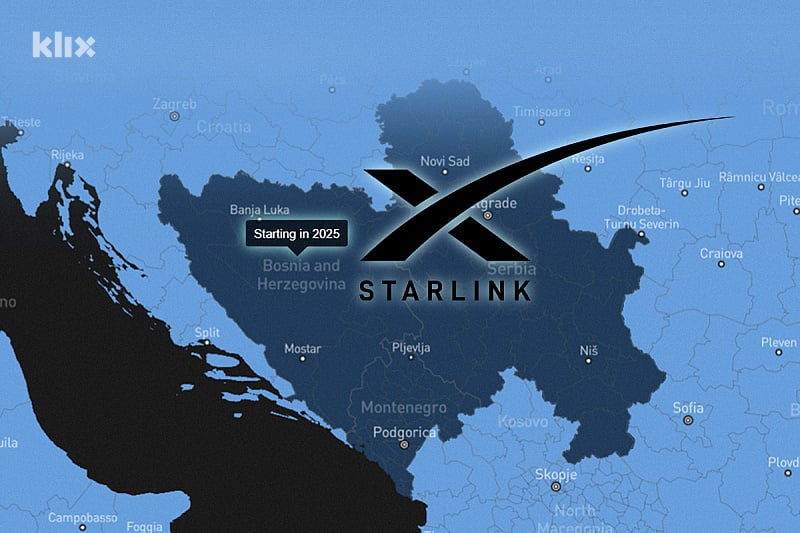Bosnia and Herzegovina, along with neighboring Serbia and Montenegro, could soon gain access to a modern satellite connection system offered by the company “Starlink”, owned by a well-known technology entrepreneur. According to media reports, an agreement on legal steps to enable the arrival of this service was reached in April, during a meeting between the Minister of Communications and a high-ranking representative of the company in the US capital.
The network that enables this type of wireless access uses several thousand flying devices that orbit the planet in an organized structure. The introduction of such technology to the domestic market, according to experts in the field of digital forensics and communication systems, could have a profound impact on the development of infrastructure, the stability of institutions and the progress of the economy.

This advanced method of connection provides the opportunity for remote areas, mountainous regions and villages that have never had a permanent network connection to receive a reliable signal. This would enable a more even inclusion of all citizens in the modern technological world. However, the question arises as to what response the existing domestic companies operating on the market can offer when it comes to the arrival of a system that does not require local support.
A professor who follows this topic warns that it is urgently necessary to harmonize legal norms and security strategies in order to preserve control over the flow of information. It is recommended to adopt clear rules that would oblige foreign suppliers to cooperate with domestic institutions, without jeopardizing the rights of users to open access to content.
Finally, at a time when the protection of the digital space has become a key element of state stability, the presence of technology that operates beyond the reach of local mechanisms carries risks. Such systems could be used for covert activities, the dissemination of false information or the organization of illegal actions. In crisis circumstances, the possibility of certain communications escaping supervision can make it difficult for the competent authorities to act and lead to serious consequences for the security of society.

